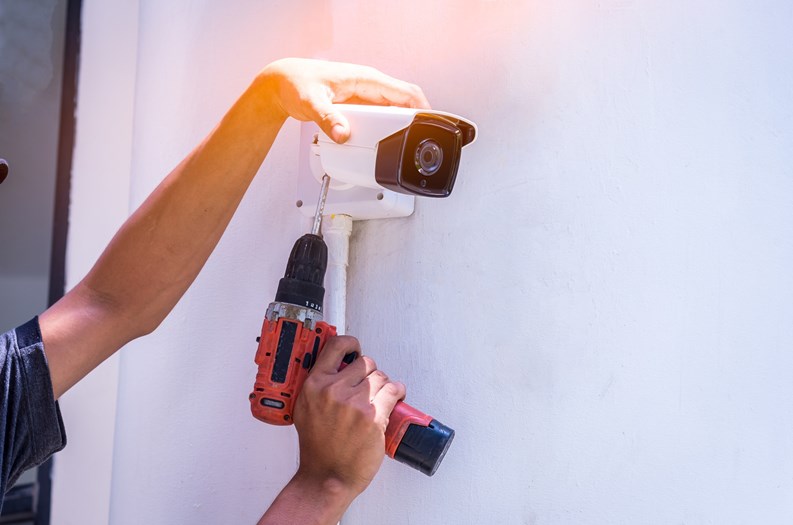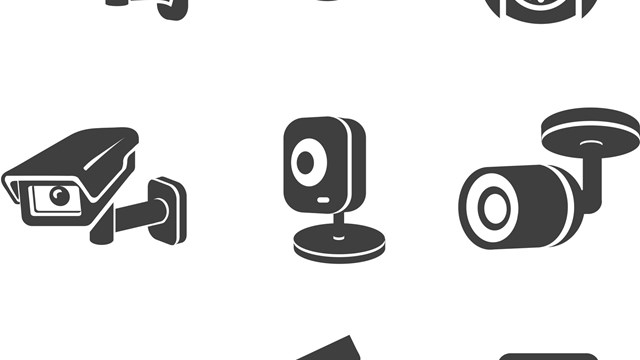Q. I live in a condominium in Boston. Cameras have been installed in the complex for security purposes, but I feel like I am being watched all the time by the board president. He knows at all times the ins and outs of residents, or the things we do when we neighbors gather together downstairs by sending emails regarding our actions—which are only friendly. What can we do about this? Is this kind of “surveillance” even legal?
— Preferring Privacy
A. “The short answer to the question of whether it is legal for the board to install and maintain security cameras in the common areas of a condominium is, ‘yes,’” says Jessica Molignano, Esq., an associate at Perkins & Anctil in Westford, Massachusetts. “As lawyers, however, we tend to disdain short answers, so a few qualifications are necessary.
“Generally speaking, condominium boards in the Commonwealth have broad power and control over the common areas of the condominiums they oversee, and these powers typically include the rights (and duty) to maintain the common areas in a safe and secure fashion. However, the board’s right to install and operate these systems may be limited in a few important respects.
“First, if a condominium in Massachusetts plans to install a security system with cameras where one does not already exist in the common areas, that installation likely constitutes an ‘improvement’ subject to a vote of the unit owners under the Condominium Act. The Condominium Act, specifically M.G.L. c. 183A, §18, states that ‘[i]f fifty per cent or more but less than seventy-five per cent of the unit owners agree to make an improvement to the common areas and facilities, the cost of such improvement shall be borne solely by the owners so agreeing.’ M.G.L. c. 183A, §18 further provides that ‘[s]eventy-five per cent or more of the unit owners may agree to make an improvement to the common areas and facilities and assess the cost thereof to all unit owners as a common expense…’ This means that if the installation of a system constitutes an ‘improvement,’ the condominium board would be required to obtain the approval of unit owners entitled to 75% of the beneficial interests in order to assess the costs to all of the owners as a common expense.
“In addition to the considerations under the Condominium Act, the installation and operation of security cameras may also implicate Massachusetts privacy and wiretapping laws:
“Privacy Law: Massachusetts General Laws c. 214, §1B provides that ‘[a] person shall have a right against unreasonable, substantial or serious interference with his privacy.’ This statute codifies a right of action for tortious interference with individuals’ privacy and, when considering whether to allow cameras to be installed at a condominium, should not be ignored. Massachusetts courts have interpreted this statute to require that a plaintiff alleging a privacy violation must show that the alleged invasion was both unreasonable and substantial or serious. See O’Connor v. Police Commissioner of Boston, 408 Mass. 324, 330 (1990). Courts have also held that ‘[t]he appearance of a person in a public place necessarily involves doffing the cloak of privacy which the law protects’ Cefalu v. Globe Newspaper Co., 8 Mass.App.Ct. 71, 77, 391 N.E.2d 935 (1979).
“In the case of Digirolamo v. D.P. Anderson & Associates, Inc., 1999 WL 345592 (Mass. Super. 1999) at 3, the court explained that ‘[i]f, as a matter of law, a person has no reasonable expectation of privacy in what can be seen with the naked eye in plain view, it is difficult to understand how that type of intrusion, as a matter of law, can be found to be substantial or serious.’ The court then held that observation of an individual in their home, with the naked eye and without trespass, does not violate the statute. Id. While there can never be a guarantee against an individual filing suit, the state of the privacy law indicates that a plaintiff would not have a valid claim regarding surveillance cameras in a public place or, in the condominium context, in common areas such as the driveways, lawns, roadway, or exterior areas. Associations do still need to be mindful that security cameras are positioned in such a way to avoid recording within an individual unit.
“Wiretapping Law: If the proposed security system has an audio recording component, its installation and operation would also implicate the Massachusetts wiretapping statute (M.G.L. c. 272, §99). The statute generally prohibits the interception of oral communications. ‘Interception’ is defined as meaning ‘to secretly hear, secretly record, or aid another to secretly hear or record the contents of any wire or oral communication…’ At a glance it may appear that one seeking to record oral communication need only remove the element of ‘secrecy’ in order to avoid violation of the statute. However, applicable case law has held that, generally speaking, unless all parties have ‘actual knowledge’ of the audio recording, the recording party has violated the statute. The United States First Circuit Court of Appeals held, in Gilday v. Dubois, 124 F.3d 277, 289 (1997), that a secretive interception occurs ‘unless both parties…had actual knowledge…’ In Commonwealth v. Hyde, 434 Mass. 594, 599 (2001), the Massachusetts Supreme Judicial Court reiterated this point, holding that the statute prohibits ‘secret’ recordings made without the target’s ‘permission or knowledge.’
“Lastly, M.G.L. c. 183A is an enabling act. The statute sets guidelines for condominiums but essentially allows associations and trusts to further limit or restrict certain actions. This means that a condominium’s governing documents could contain language which restricts or limits the installation or use of security cameras on condominium property. As such, it is important to review the condominium master deed, declaration of trust/bylaws, and any rules and regulations for such possible restrictions.”










Leave a Comment